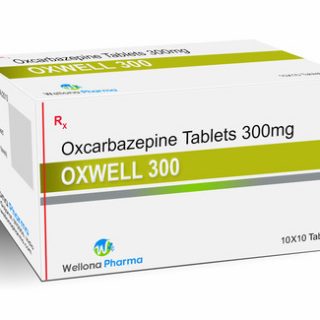Phenytoin
$15.00
What is Phenytoin Dilantin Pill?
What is Phenytoin Dilantin Pill? Dilantin is used for the prevention and control of seizures. Dilantin for seizures is also called an anticonvulsant or antiepileptic drug). Moreover, Dilantin dosages work by reducing the spread of seizure activity in the brain.
How to use
Read the Medication Guide provided by your pharmacist before you start taking phenytoin and each time you get a refill. If you have any questions about what is Phenytoin Dilantin Pill is or what Dilantin is used for? ask your doctor or pharmacist.
The tablets may be chewed thoroughly before swallowing or swallowed whole.
- Take Dilantin dosages by mouth usually 2 or 3 times a day, or as directed by your doctor.
- This product is not recommended for use once a day.
- You may take it with food if a stomach upset occurs.
- Take this medication with a full glass (8 ounces or 240 milliliters) of water unless your doctor directs you otherwise.
- Use this medication regularly to get the most benefit from it.
- It is important to take all doses on time to keep the amount of medicine in your body at a constant level.
- Remember to use it at the same time each day.
- Dosage is based on your medical condition and response to therapy.
Antacids and nutritional tube-feeding (enteral) products may decrease the absorption of phenytoin. Do not take these products at the same time as your phenytoin dose. Separate liquid nutritional products at least 1 hour before and 1 hour after your phenytoin dose, or as directed by your doctor.
Do not stop taking Dilantin dosages without consulting your doctor. Seizures may become worse when the drug is suddenly stopped.
Inform your doctor if your condition does not improve or worsen.
Side effects
- Headache
- nausea
- vomiting
- constipation
- dizziness
- feeling of spinning
- drowsiness
- trouble sleeping
- nervousness
If any of these effects persist or worsen, tell your doctor or pharmacist promptly.
Dilantin for seizures may cause swelling and bleeding of the gums. Massage your gums and brush and floss your teeth regularly to minimize this problem. See your dentist regularly.
Remember that your doctor has prescribed this medication because he or she has judged that your benefit is greater than the risk of side effects. Many people using this medication do not have serious side effects.
Tell your doctor right away if you have any serious side effects, including
- slow heartbeat
- unusual eye movements
- loss of coordination
- slurred speech
- confusion
- muscle twitching
- double or blurred vision
- tingling of the hands/feet
- facial changes
- excessive hair growth
- increased thirst or urination
- unusual tiredness
- bone or joint pain
- easily broken bones
A small number of people who take anticonvulsants for any condition (such as seizure, bipolar disorder, pain) may experience depression, suicidal thoughts/attempts, or other mental/mood problems. Tell your doctor right away if you or your family/caregiver notice any unusual/sudden changes in your mood, thoughts, or behavior including signs of depression, suicidal thoughts/attempts, thoughts about harming yourself.
For males, in the very unlikely event you have a painful or prolonged erection lasting 4 or more hours, stop Dilantin is used for seizures and seek immediate medical attention, or permanent problems could occur.
Get medical help right away if any of these rare but very serious side effects occur: uncontrolled muscle movements, signs of liver problems (such as nausea/vomiting that doesn’t stop, stomach/abdominal pain, yellowing eyes/skin, dark urine), easy bruising/bleeding.
A very serious allergic reaction to Dilantin dosages is rare. However, get medical help right away.
Warnings & Precautions
- Before taking Dilantin dosages, tell your doctor or pharmacist if you are allergic to it.
- Before using Dilantin for seizures, tell your doctor or pharmacist your medical history.
- Do not drive, use machinery, or do anything that needs alertness until you can do it safely.
- Limit alcoholic beverages.
- Tell your doctor you are using phenytoin before surgery or any procedure that makes you unable to take it by mouth.
- Check your blood (or urine) glucose level as directed by your doctor.
Vitamin D supplements may be necessary to prevent the weakening of the bones (osteomalacia). Discuss this with your doctor.
During pregnancy, use Dilantin for seizures only when clearly in need. Dilantin is used for seizures that can harm an unborn baby. However, since untreated seizures are a serious condition that can harm both a pregnant woman and her unborn baby, do not stop taking this medication unless directed by your doctor. If you are planning pregnancy, become pregnant, or think you may be pregnant, immediately talk to your doctor about the benefits and risks of using this medication during pregnancy. Since birth control pills, patches, implants, and injections may not work if taken with this medication, discuss reliable forms of birth control with your doctor.
Dilantin for seizures passes into breast milk. Consult your doctor before breastfeeding.
Storage
Store at room temperature away from light and moisture. Do not store in the bathroom. Keep all medications away from children and pets.
Do not flush medications down the toilet or pour them into a drain unless instructed to do so. Consult your pharmacist or local waste disposal company.
Drug interactions
Drug interactions may change how Dilantin Pill work or increase your risk for serious side effects. This document does not contain all possible drug interactions. Keep a list of all the products you use (including prescription/nonprescription drugs and herbal products) and share it with your doctor and pharmacist. Do not start, stop, or change the dosage of any medicines without your doctor’s approval.
Some products that may interact with this drug include azapropazone, colesevelam, darunavir, delavirdine, dofetilide, etravirine, molindone, nisoldipine, orlistat, pyridoxine (vitamin B6), rilpivirine, sucralfate, telithromycin.






